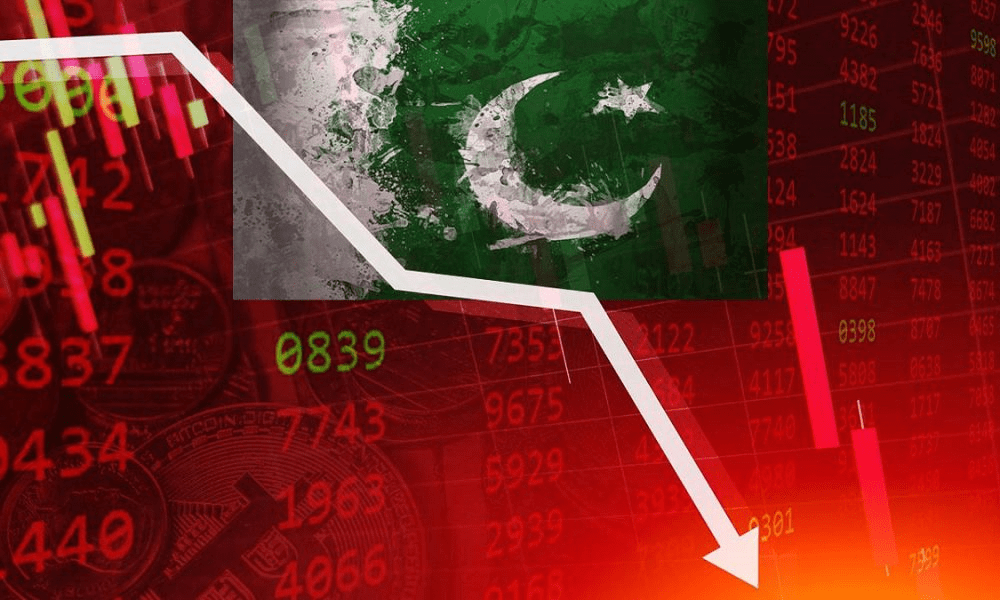The word “Default” refers to a failure of a contract’s terms or a violation of an obligation. According to the International Monetary Fund (IMF), a country is regarded to be in default when its government is either unwilling or unable to repay its creditors. Sri Lanka, Ukraine, Zambia, Lebanon, and Argentina are some of the more recent examples of countries that have defaulted on their loan obligations. Because inflation is rising, the currency is strengthening, the cost of borrowing money is rising, and the global economy is faltering, Pakistan is either about to default on its debt or is in risk of defaulting. A number of foreign financial institutions and professionals have expressed concern about Pakistan’s disastrous debt situation.
Difficult Economic Crossroads
The country is currently at a difficult economic crossroads as a consequence of a variety of issues, including political insecurity, confusing internal policies, and an adverse international environment. The capacity of Pakistan’s government to prolong the delayed Extended Fund Facility (EFF) programme agreed upon with the International Monetary Fund will decide if Pakistan fails on its obligations (IMF). Access to international credit markets, support from international multilateral institutions such as the World Bank and the Asian Development Bank, and bilateral finance agreements are all depending on this element.
Unfortunately, when the National Assembly received the federal budget for the fiscal year 2022-2023 on June 10, talks with the Fund to establish a staff-level agreement (SLA) reached a snag, resulting in a setback for the negotiations. The markets have been driven into a tailspin as a result of the uncertainty that has accompanied the revival of EFF. Following the budget’s release, the KSE-100 index fell by more than 1000 points or more than 2%, and the exchange rate fell by more than PKR 6 relative to the USD. The State Bank of Pakistan’s foreign currency reserves are continuing to fall, and as of June 10, they were at just USD 9.2 billion. There are unsubstantiated rumours that international banks are demanding a 100 percent margin provision against letters of credit. There is an increasing sense of dread about the potential that SLA may not be met, and the event horizon for the default scenario is approaching.
Breaching a debt commitment contract
S&P, a credit rating organisation, defines “default” as a country “breaching a contract on a debt obligation” or “tendering an exchange offer of fresh debt with less favourable terms than the original issuance.” When a country undertakes one of these things, it is regarded to have defaulted. If this occurs, the consequences for Pakistan will be disastrous, as the nightmare instability that has erupted in Sri Lanka may serve as an example.
Insolvency will have a domino effect, causing substantial sectors of the domestic economy to go bankrupt and causing severe social disruption. The government and the institutions it controls would suffer an immediate and severe loss of trust among Pakistanis and international lenders.
Default Consequences
The effects of default are likely to be felt across the economy. Exporters and importers would be unable to get trade finance, causing a shortage of vital consumables and industrial inputs. As household unemployment grows, overall expenditure reduces, and hence aggregate demand falls. As a result, even more, workers will be laid off, aggravating the demand contraction.
“It is far from apparent that, following a default, the state will be able to renegotiate the terms of the current loans in order to re-establish access to international credit facilities and work toward long-term economic change without the weight of crushing debt.”
For politicians to ever allow a default to occur, the risks associated with it must be too high. The government should be conscious that defaulting would cause even more public outrage than implementing the “additional actions” needed by the Fund to restart the EFF programme. This entails eliminating all subsidies on gasoline and diesel sales by boosting their prices. The government is also planning to implement Rs7.91 per unit hikes in power rates, as well as quarterly fuel adjustments mandated by the National Electric Power Regulatory Authority (NEPRA).
The Fund is claimed to be displeased by the budget’s Personal Income Tax (PIT) proposals and has stated that it would prefer an additional Rs125 billion in revenue collection rather than the budget’s offer of Rs47 billion in tax relief. Finally, the fund may want to know when the Rs750 billion in gasoline charges will be paid.
Time is running out to implement corrective measures and reestablish confidence with the IMF in order to achieve an SLA agreement. If this is not done, the country may be forced to declare bankruptcy. This type of circumstance must be avoided at all costs.
Conclusion
It is probable that Pakistan’s economy may suffer as a result of “political instability,” which is the fundamental cause of any nation’s failure. In this volatile environment, political parties must exercise moderation and make strong measures to break the deadlock that has caused clouds of discomfort and uncertainty to blanket the landscape. People are more concerned about the situation of the economy than they are about the shady schemes and campaigns they are waging to keep power.

